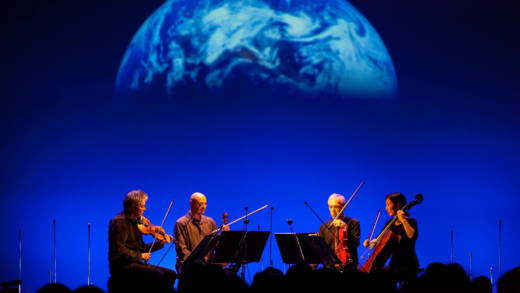Update, May 30: Kronos Performing Arts Association (KPAA) announced that Hawa Kassé Mady Diabaté canceled her appearance at Kronos Festival due to visa delays. According to KPAA, the United States embassy in Mali subjected her to the Trump administration’s “extreme vetting” procedure that will delay her visa indefinitely. San Francisco Girls Chorus and Valerie Sainte-Agathe will still perform her piece, Tegere Tulon, on June 1.
“It is deeply upsetting that such an amazing vocalist would be prevented from sharing her unique artistry here,” said KPAA Managing Director Janet Cowperthwaite. “What a missed opportunity for Kronos, the San Francisco Girls Chorus, and our audiences.”
When it comes to collaboration, the members of Kronos Quartet don’t seem too concerned with a musician’s genre—or age, or language or musical instrument, for that matter. Instead, the contemporary-classical powerhouse tends to tap people whose work is emotionally moving, intellectually stimulating and technically impressive as hell.
To give one example: last year, at the quartet’s annual festival at SFJAZZ, Kronos’ delicate string playing accompanied a surrealist, sorrowful sailor song by freak-folk duo CocoRosie. As CocoRosie’s operatic vocals swelled, the quartet’s bows went flying as they shredded on their violins, cello and viola. Soon, tabla master Zakir Hussain joined in, beating a pitter-patter rhythm on his drums with the intuitive touch of a reiki healer. The musicians locked in step with the agility of the Warriors’ starting squad, and the whole performance vibrated toward an epic crescendo, leaving the audience with their jaws on the floor.



